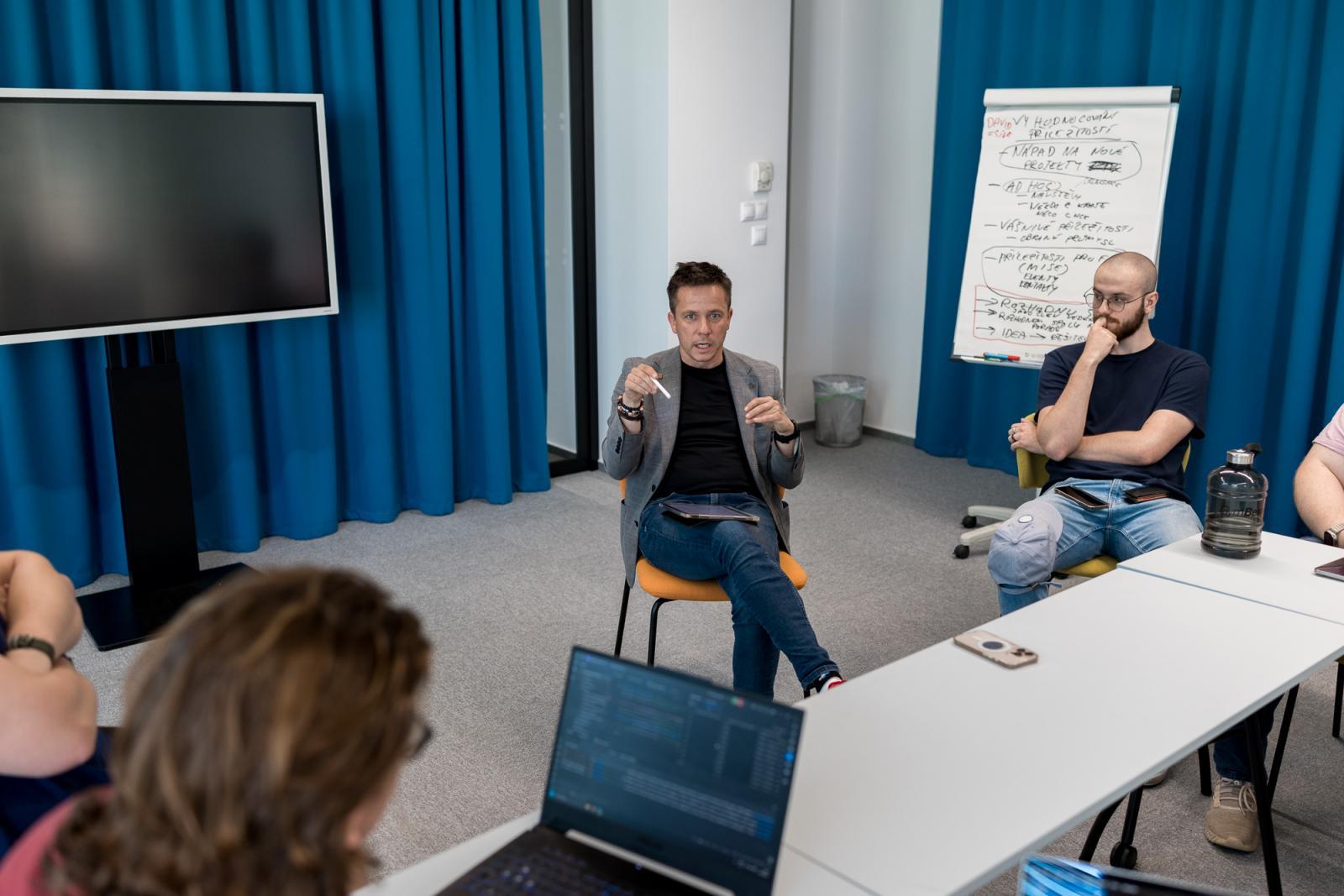|
Another research project by experts from our faculty is gaining important integration into medical practice. Researchers from the STRaDe group, including faculty students involved in the group, are working in collaboration with experts from the Clinic of Pulmonary Diseases and Tuberculosis at the Brno University Hospital to develop new methods for diagnosing and monitoring respiratory and lung diseases. The joint research is being conducted under a memorandum of cooperation signed at the beginning of this year.
The team's goal is to create detailed models of selected sections of the respiratory tract and, at the same time, to explore the possibilities for their most effective measurement. Thanks to the combination of these approaches, doctors will have tools at their disposal that will allow them to monitor much more accurately how the respiratory tract changes over time – whether as a result of natural development or in connection with a specific disease. Such findings are crucial, for example, when deciding on a course of treatment or evaluating the effectiveness of the therapy used. Head of the Department of Pulmonary Diseases and Tuberculosis Prof. Milan Sova says of the practical applicability of the research: "In clinical practice, we often encounter situations where, for example, we need to calculate the diameters of the trachea and bronchi in real time during an endoscopic examination. Currently, there are no available solutions, but thanks to our collaboration with FIT VUT, we are able to explore new avenues and develop methods that will help our patients in the future. Our goal is to be at the forefront of research in this area, and collaboration with VUT is the way to achieve this." When asked about specific diagnoses in which the new methods can be used, Prof. Sova lists airway stenosis of both malignant and benign etiology.
To achieve these results, scientists use a wide range of modern technologies. In addition to proven computer vision techniques, they also rely on the latest machine learning and artificial intelligence methods, which enable the automation of image data analysis. They also draw inspiration from areas outside medicine, such as the automotive industry, where similar algorithms have proven themselves in real-time image analysis under demanding conditions. "Every day, new possibilities emerge in the field of artificial intelligence and image processing, but their implementation in practice is gradual. Our goal is to transfer these technologies into the real world as quickly as possible and find specific applications for them in healthcare. We believe that modern IT methods can bring enormous benefits in the diagnosis and treatment of patients, which is why we are working closely with the Department of Pulmonary Diseases and Tuberculosis," says Tomáš Goldmann, principal investigator at FIT VUT, summarizing the motivation behind the project.
The practical benefits of the collaboration are evident. "If everything goes according to plan, this will be a solution that will significantly simplify endoscopic examinations in patients with airway stenosis, tracheal dyskinesia, and similar conditions. This will be followed by standard therapy, which, however, can be tailored to each patient," summarizes the desired goal of Professor Milan Sova from the Department of Pulmonary Diseases and Tuberculosis.
|
![[img]](https://www-dev.fit.vutbr.cz/fit/news-file/d303021/planet-volumes-7dRmpT3vxV8-unsplash_1600.jpg)
![[img]](https://www-dev.fit.vutbr.cz/fit/news-file/d302938/PXL_20250917_055052938_1600.jpg)
![[img]](https://www-dev.fit.vutbr.cz/fit/news-file/d302488/FIT_JSALT_2025_086_1600.jpg)
![[img]](https://www-dev.fit.vutbr.cz/fit/news-file/d302480/Kopie_souboru_IMG_0398_1600.jpg)



![[img]](https://www-dev.fit.vutbr.cz/fit/news-file/d301673/JIC_V___p__edm__t_blok_4__2025_-20_1600.jpg)